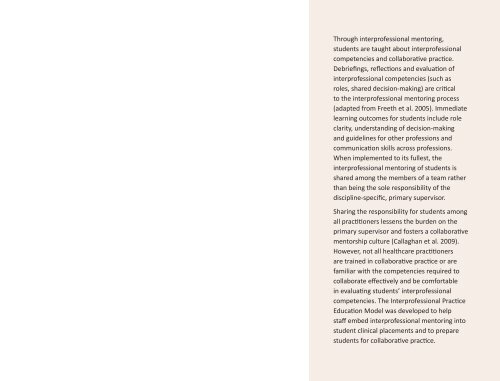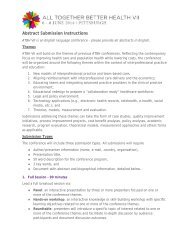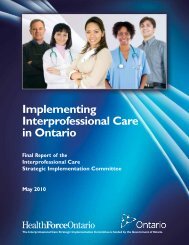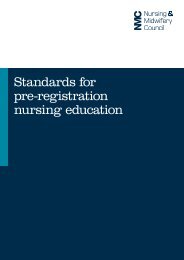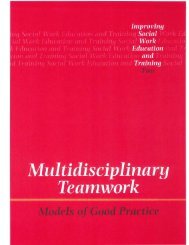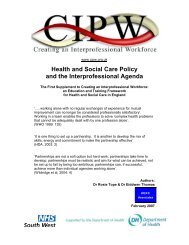Interprofessional Mentoring Guide - Alberta Health Services
Interprofessional Mentoring Guide - Alberta Health Services
Interprofessional Mentoring Guide - Alberta Health Services
You also want an ePaper? Increase the reach of your titles
YUMPU automatically turns print PDFs into web optimized ePapers that Google loves.
Through interprofessional mentoring,<br />
students are taught about interprofessional<br />
competencies and collaborative practice.<br />
Debriefings, reflections and evaluation of<br />
interprofessional competencies (such as<br />
roles, shared decision-making) are critical<br />
to the interprofessional mentoring process<br />
(adapted from Freeth et al. 2005). Immediate<br />
learning outcomes for students include role<br />
clarity, understanding of decision-making<br />
and guidelines for other professions and<br />
communication skills across professions.<br />
When implemented to its fullest, the<br />
interprofessional mentoring of students is<br />
shared among the members of a team rather<br />
than being the sole responsibility of the<br />
discipline-specific, primary supervisor.<br />
Evidence from research and practice suggests<br />
that placements with interprofessional<br />
learning opportunities are attractive for<br />
students and that graduates who have been<br />
involved in an interprofessional practice<br />
education tend to return to these sites<br />
for employment. In that sense, we view<br />
interprofessional mentoring as a recruitment<br />
strategy. Placements that give students<br />
exposure to the work of team members<br />
other than their discipline-specific advisor<br />
help facilitate the integration of students into<br />
the practice site team, thereby easing the<br />
transition from student to practitioner.<br />
Sharing the responsibility for students among<br />
all practitioners lessens the burden on the<br />
primary supervisor and fosters a collaborative<br />
mentorship culture (Callaghan et al. 2009).<br />
However, not all healthcare practitioners<br />
are trained in collaborative practice or are<br />
familiar with the competencies required to<br />
collaborate effectively and be comfortable<br />
in evaluating students’ interprofessional<br />
competencies. The <strong>Interprofessional</strong> Practice<br />
Education Model was developed to help<br />
staff embed interprofessional mentoring into<br />
student clinical placements and to prepare<br />
students for collaborative practice.


